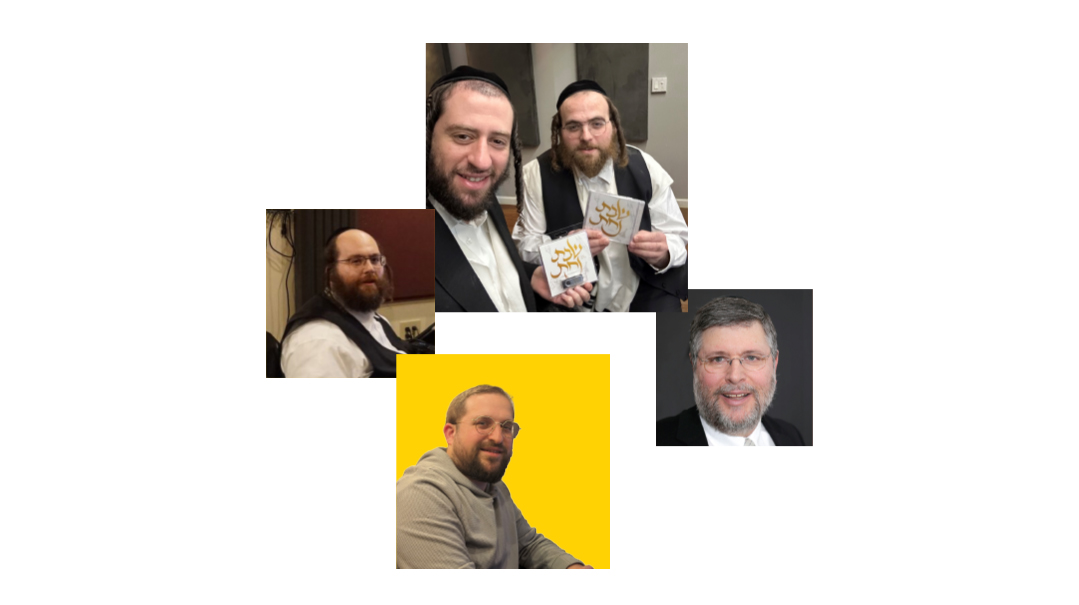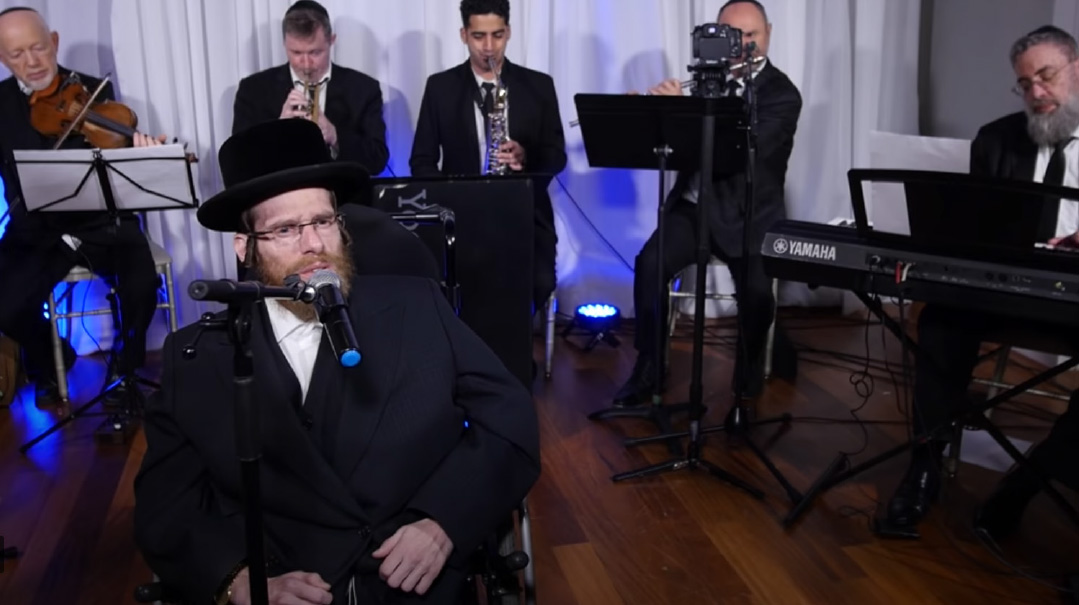Endnote: Issue 986
| November 14, 2023“The first time, we didn’t know exactly what the result would be. But this second time, we knew the exact vibe we were trying to achieve”

Baruch Hashem It’s Shabbos
“I measure demand by the amount of people who tell me, ‘We need another album,’” says MOSHY KRAUS, producer of the Yiddish Nachas albums and children’s choir he cocreated with Yossi Green back in 2014. Four years ago, the choir produced a CD titled Shabbos Nachas, which would be the first of the Shabbos Nachas series. The chassidish children’s voices singing Shabbos songs became the sound of Erev Shabbos in many homes, with streaming still ongoing every Thursday afternoon and Friday. Moshy says his friends and neighbors were asking him to produce another album with the same flavor, and he’s now answered their challenge.
For SHABBOS NACHAS 2: TOAMEHU, Moshy worked with Zisha Schmeltzer, who arranged the music and coproduced the album. Their goal was to do the same, but better. “The first time, we didn’t know exactly what the result would be. But this second time, we knew the exact vibe we were trying to achieve. The entire process, from song selection to musical and vocal arrangements, was about recreating the ‘Shabbos Nachas’ feel of the first album.”
There are some songs that all listeners will know, and others that you might not realize you know until you hear them and your subconscious recognizes nostalgic childhood Shabbos echoes. The first pick for this album was Reb Pinky Weber’s “Uvirtzoncha,” which Kraus says he sings every week at the table with his own children — one of the highlights of his Shabbos. Then he included a kiddush medley, a collection of the songs he usually leads in the shul kiddush on Shabbos morning. Listeners will enjoy guest vocalists Yossi Green, Shmueli Ungar, Yanky Daskal, Sruli Werdyger, and Rabbi Shloime Taussig, among others.
Surprisingly, Moshy says there are some songs on the album that he didn’t know previously, indicating the sheer breadth of the Shabbos song repertoire. “Both Reb Yisrael Wertzberger’s ‘Raza DeShabbos’ and Shlomo Katz’s popular ‘Yismechu Bemalchuscha’ were suggested by other members of the team and were actually new to me. I loved them when I heard them, so we went ahead and taught them to the choir.”
Nowadays, he finds himself relistening to the lively dance medley. “I had finished putting the entire medley together when I realized I wasn’t happy, even after tweaking the mix and some of the music. One night I decided to rearrange the order of the songs, and open with Shwekey’s up-to-date “Baruch Hashem s’is Shabbos,” and all of a sudden it felt just right. Moving it meant working with 60 tracks, but it was worth the result.”
Working with a collection of old songs is a different kind of challenge than producing new material. Every bridge and chord change has to be carefully planned, as does the amount of time to spend on each tune — which, Moshy explains, is not too long. “It takes time for a listener to connect to new songs, but if you put out an album of old material, especially with a specific theme and feel, the listener connects right away, with no intro or bridge needed. So you don’t need to sit too long on one song, and instead, just keep moving on.”
The first track, Shabbos Nachas, carries the essence of the album’s vibe — vintage Shabbos songs — at a gentle pace. It was important to enter the spirit of Shabbos right away, and Moshy originally did this by starting with the Vizhnitz niggun, “Uy, didi duy didi duy duy duy duy duy, Uy, didi duy didi duy….” But when his friend, Bnei Brak musician Meyer Adler, suggested that he open the album with a Yiddish version of Yigal Calek’s “Shabbos, My Shabbos, Heilige Shabbos” (“The Lost Princess”), he saw that the song worked its magic: “In three seconds, you’re there already. It’s Shabbos,” he says.
Perfect Harmony
Can you think of a song that has amazing vocal arrangements?
I find that the Modzhitz classic Baruch Keil Elyon, composed by Reb Ezriel Fastag Hy”d lends itself to harmony amazingly. Everyone at the table can catch on easily, and it’s a beautiful thing to sing at a seudah.
—Avrum Mordche Schwarz
The Project I’ll Never Forget
The one which I worked on for weeks, but never released. It was a new artist, who invested so much time and so much heart in recording here. We recorded the music, edited and made revisions, dissected every move and every beat, and finalized the mix — and at the end the singer decided not to become a singer. The work was paid for, but the project never saw the light of day. I had to accept it and not view it as a waste because obviously this is what Hashem wanted.
—Gershy Schwarcz, Edgware Studios
During these days of war and terror in Eretz Yisrael, what songs are you turning to for chizuk?
I’ve found myself turning to Dovid Hamelech’s timeless words, “Va’ani bechasdecha vatachti, yagel libi biyeshuasecha — But as for me, I trust in Your kindness; my heart will exult in Your salvation; I will sing to Hashem, for He has dealt kindly with me.” Rabbi Baruch Chait and Shlomo Carlebach each wrote stirring and uplifting niggunim to those hopeful words. We have Hashem’s promise that Klal Yisrael is eternal and that better days are coming. Like Dovid Hamelech, let us, too, exult in that knowledge even in the darkest and most trying of moments.
—Abie Rotenbeg
If there is one song that offers chizuk in these times of enemies threatening to destroy Klal Yisrael, it’s Yonatan Razel’s “Vehi She’amdah,” performed by Yaakov Shwekey. It’s always been a favorite song of mine, but now more than ever it feels like it’s the right time for it. Of course, there is “Acheinu Kol Beis Yisrael,” either Yossi Green’s moving tune or Abie’s classic, and I would also recommend Shmueli Ungar’s “Rachmana.”
—Naftali Schnitzler
(Originally featured in Mishpacha, Issue 986)
Oops! We could not locate your form.







